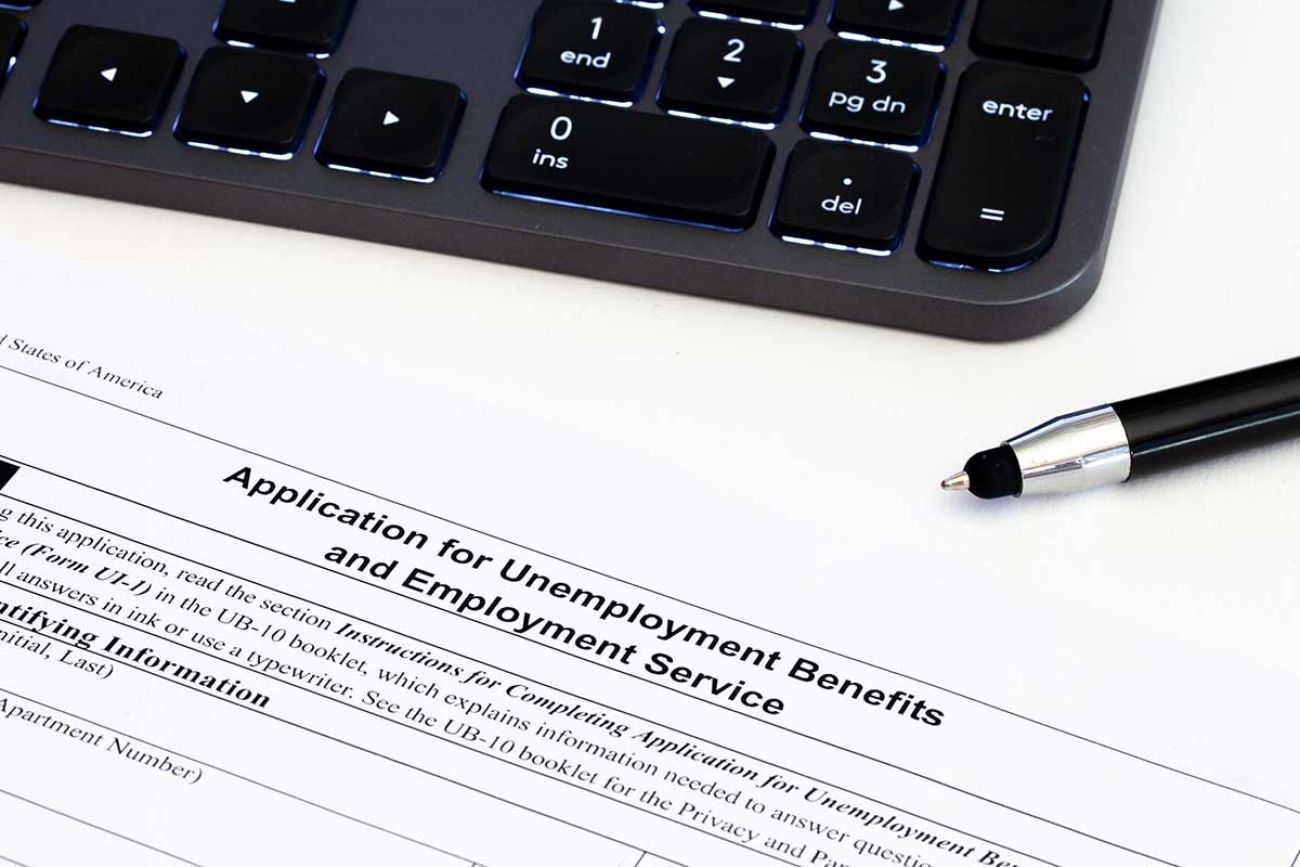Audit: Michigan unemployment agency still struggles with COVID-era claims

- Michigan’s Unemployment Insurance Agency continues to struggle with claims stemming from $40 billion paid in pandemic jobless benefits
- A state audit released Friday said UIA’s inaction could hurt its chances of recovering improperly paid funds
- The agency’s director accused the auditor of focusing too much on sins of the past and not adequately acknowledging UIA reforms
Years of problems within Michigan’s embattled Unemployment Insurance Agency continued into 2022, a new state audit revealed Friday, as the agency continued to be challenged by massive oversight gaps that peaked with the surge in claims after the pandemic hit in spring 2020.
The state’s latest audit — the fourth in a series — focused on claims processing, which drew years of fire from jobless workers and the Legislature over backlogs, inaccessible answers and eligibility requirements that changed multiple times as three-quarters of Michigan’s workforce tried to access COVID-19 related benefits.
The 118-page report from the Office of Auditor General concluded that UIA’s processes were ineffective, resulting in an estimated $10.2 billion in payouts to people either ineligible or potentially ineligible.
Related:
- Michigan unemployment office to spend $78M to replace ‘antiquated’ system
- 2023 Michigan minimum wage increase may go higher: What to know
- Value of Michigan’s largest public companies dropped by over $120B in 2022
Among the 14 findings in the report are ongoing concerns about how the agency has responded to recommendations in the past year on how it could better detect fraud in the billions of dollars in payments to workers during the pandemic.
The agency, according to the audit, acknowledged as recently as August it had to reconfigure its computer system but “took no further action to flag likely fraudulent claims in (the system) or recover overpayments.”
UIA Director Julia Dale described herself as frustrated by the state’s latest audit of the agency, which paid out $40 billion in benefits to jobless workers during the pandemic.

The UIA agreed or partially agreed with all audit findings, though Dale told Bridge Michigan this week she believed the audit ”misses the mark” by failing to recognize her reforms and the scope of the pandemic, which increased by millions the number of people seeking jobless benefits within just a few weeks.
The report lists findings on fraud, technology, financial waivers and what Dale called “other well-documented issues at the UIA under past leadership” in a December 14, 2022 letter to Auditor General Doug Ringler.
“I feel it is my obligation to my hardworking staff and partners to put the … report into perspective,” Dale wrote in the letter. “I am writing to set the record straight.”
The audit report calls out the agency for failing to adequately respond to inquiries about benefits waivers for people who received payments but later were ruled ineligible as well as the agency’s decision not to filter a batch of cases for potential fraud.
The three-year limit for seeking to get some of those payments back expires in April, the audit warned.
“(The UIA) may miss the opportunity to investigate and identify billions of dollars in existing overpayments as potentially fraudulent,” according to the audit, which recommended UIA get legal advice on its decision.
Unclear is how many jobless workers still have pending claim decisions and whether more waivers — as opposed to restitution efforts — are pending. The UIA did not provide Bridge that number this week when it was requested.
The UIA waived $555 million in payments in 2022 to 76,000 people who’d received benefits but later were ruled ineligible. About 400,000 received waivers of benefits repayment from the federal Department of Labor, after about 700,000 people were told in July 2021 that their claims had to be revalidated.
Dale, appointed in October 2021 by Gov. Gretchen Whitmer to lead the agency, became the 11th director in as many years as she took over an office that had been struggling from persistent dysfunction by the time COVID-19 reached Michigan. The problems multiplied as the state’s unemployment rate peaked at 22.7 percent in April 2020.
During the pandemic, 3.5 million people — a number that represents 74 percent residents working in early 2020 — filed for benefits.
The number of applicants spiked, in part, due to the federal CARES Act that expanded eligibility — including to part-time and self-employed workers — at the same time that the duration of the benefit was extended and payouts included extra checks totaling up to $600 per week.
Earlier audit reviews revealed the agency’s sloppy hiring practices and a move in 2020 to cut oversight, which resulted in the improper payments, as well as many good-faith applicants being unfairly accused by the state of fraud.
Rep. Matt Hall, R-Richland Township and the new House Republican leader, was among Republicans who requested the audit when he was chairing the Joint Select Committee on the COVID-19 Pandemic.
He called the latest report a “brighter spotlight on the chaotic mess” in Whitmer’s administration.
“When the people of Michigan were struggling, the unemployment agency failed jobless workers who really needed help, cut corners, and wasted billions of taxpayer dollars to fraud and mistake,” Hall said in a statement on Friday.
The UIA has 30 days to develop a plan to comply with the recommendations and to submit it to the State Budget Office, according to the audit.
Dale, in an interview Wednesday with Bridge in anticipation of the report’s release, said the agency has made many reforms to address procedural problems in the office and resolve waves of complaints by people who’d first struggled to apply and receive the benefits, then were told to give them back.
“That didn’t seem to be reflected in the audit,” Dale said.
Rather, she said, the audit’s message seemed to offer “a rehashing of issues that have been addressed again, and again, and again, rather than a focus on … changes,” Dale said.
Dale told Bridge the agency is taking several steps to overhaul its practices.
Among them, the UIA expects to begin the process of replacing its computer system, known as MiDAS, by year-end, after awarding a $78 million contract to Deloitte in November. The company will replace a system that was designed to find fraud but was also designed to operate without human oversight.
The new system will take two years to put into operation, Dale said, after a contract is finalized this year.
In 2015, as Bridge has reported, the current computer system flagged 40,000 people who had made valid unemployment claims with receiving improper payments, forcing many to pay restitution. In 2017, the state agreed to sweeping reforms of its error-filled system, and in fall 2022 spent $20 million to settle a class-action lawsuit over the issue.
During the pandemic, Friday’s audit said, fraud controls on MiDAS were removed under previous UIA Director Steve Gray, who left the agency in November 2020, so the system could more quickly process the flood of requests.
Auditors “identified the need for improved human intervention in the form of sufficient internal control and processes,” according to the document released Friday. “UIA will need to ensure it implements sufficient internal control in any system UIA employs or similar deficiencies will continue to exist.”
Meanwhile, the Unemployment Insurance trust fund has been rebuilt to $1.8 billion from its high of $4.6 billion at the end of 2019, when it was third-highest in the nation. Employer-funded, the trust fund dipped under $1 billion by the end of 2020 as COVID-19 claims pressured the system.
The agency is working with the Michigan Attorney General’s office on 94 pending fraud cases with 28 people awaiting sentencing and 15 already sentenced. An investigation by Deloitte in 2021 found that an estimated $2.8 billion was paid on claims involving likely imposter fraud and $5.7 billion was paid to claims involving likely intentional misrepresentation.
The Auditor General’s report on UIA fraud and investigation activities is expected in mid-year. Previously completed audits include:
- Michigan Integrated Data Automated System and Michigan Web Account Manager – Selected General and Application Controls, released in May 2022
- Personnel Management Processes During the Covid-19 Pandemic, released in March 2022
- Establishing Pandemic Unemployment Assistance Eligibility Criteria, released in November 2021.
Business Watch
Covering the intersection of business and policy, and informing Michigan employers and workers on the long road back from coronavirus.
- About Business Watch
- Subscribe
- Share tips and questions with Bridge Business Editor Paula Gardner
Thanks to our Business Watch sponsors.
Support Bridge's nonprofit civic journalism. Donate today.
See what new members are saying about why they donated to Bridge Michigan:
- “In order for this information to be accurate and unbiased it must be underwritten by its readers, not by special interests.” - Larry S.
- “Not many other media sources report on the topics Bridge does.” - Susan B.
- “Your journalism is outstanding and rare these days.” - Mark S.
If you want to ensure the future of nonpartisan, nonprofit Michigan journalism, please become a member today. You, too, will be asked why you donated and maybe we'll feature your quote next time!




